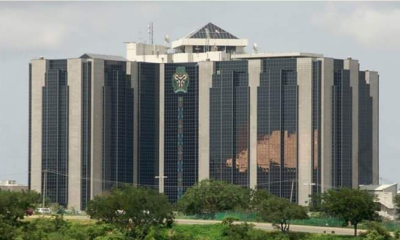Health
Open Drug Market to Stop in Nigeria by 2019


Nigerian government is to shut down all open drug markets to curb unwholesome drug distribution system. Prof. Isaac Adewole, minister of health, disclosed this in a statement issued after a ground breaking ceremony of the Coordinated Wholesale Centre, CWC, in Abia.
Adewole, in the statement made available to the News Agency of Nigeria, NAN, by the Pharmacists Council of Nigeria, PCN, on Wednesday, frowned at the chaotic drug distribution system in the country thereby endangering the lives of the populace.
He noted that the closure of all open drug markets would immediately kick start full implementation of the CWC component of the National Drug Distribution Guidelines, NDDG.
The minister, who identified unsatisfactory drug distribution system as one of the challenges in the use of medicine in the country, however said that this has led to poor product handling.
Adewole added that it has also led to difficulty in product tracking for statistical purposes, circulation of substandard products, difficulty in audit trail and destruction of professional practice.
According to him, the ministry issued the NDDG in 2013 in its bid to reverse the ugly trend of unsatisfactory drug distribution system.
The statement also quoted Elijah Mohammed, Registrar of PCN, describing the CWC as one of the concepts of NDDG to cater for or accommodate open drug marketers.
Mohammed, who identified open drug market as the hub of major drug supply and major drug problem in the country, noted that the measure would assist in sanitising drug distribution system in the country.
The registrar said that the federal government, being sensitive to the yearnings of Nigerians, provided the CWC as an alternative to those in the open drug market instead of pushing them out.
According to him, the CWC will provide effective regulatory activities and ensure good pharmaceutical service delivery in the country.
It would have control over the efficacy of drugs coming into Nigeria and being made available for consumption for Nigerians, he said.
Mohammed described CWC as a purpose built infrastructure that would cater for storage condition, practice environment, security and also in terms of regulatory activities, among others.
“There are some drugs that need to be stored within a specific temperature and CWCs has such warehouses constructed for them unlike the open drug market where everything is lumped under the sun and in stores that have no windows, among others.
“Definitely the quality and efficacy of those drugs are maintained, which is the purpose,” said the registrar.
Mohammed listed the four major open drug markets of concern to the federal government as Idumota Drug market, Lagos; Onitsha overhead bridge, Anambra; Ariaria market, Aba, Abia; and Sabon Gari market, Kano state.
According to him, those centres will boost economy, help ensure product tracking, build confidence in products in the country and increase patronage.
He emphasised that the Abia CWC would accommodate all the owners of medicine shops in Aba and in other clustered areas in the state, when fully developed.
“It is my belief that the speedy development of the coordinated wholesale centre will go a long way in sanitising the drug distribution system in the state and to a large extend the entire nation,” he said
Health
Cybercriminals Successfully Encrypted Data in Ransomware Attacks on Nearly 75% of Healthcare Organizations, Sophos Survey
Only 24% of Healthcare Organizations Were Able to Disrupt a Ransomware Attack Before Attackers Encrypted Their Data. This is the Lowest Rate of Disruption in 3 Years, reports SANDRA ANI


Sophos, a global leader in innovating and delivering cybersecurity as a service, today shared its sector survey report, “The State of Ransomware in Healthcare 2023,” which revealed that, among those organizations surveyed, cybercriminals successfully encrypted data in nearly 75% of ransomware attacks.
This is the highest rate of encryption in the past three years and a significant increase from the 61% of healthcare organizations that reported having their data encrypted last year.
In addition, only 24% of healthcare organizations were able to disrupt a ransomware attack before the attackers encrypted their data—down from 34% in 2022; this is the lowest rate of disruption reported by the sector over the past three years.
“To me, the percentage of organizations that successfully stop an attack before encryption is a strong indicator of security maturity. For the healthcare sector, however, this number is quite low—only 24%. What’s more, this number is declining, which suggests the sector is actively losing ground against cyberattackers and is increasingly unable to detect and stop an attack in progress.
“Part of the problem is that ransomware attacks continue to grow in sophistication, and the attackers are speeding up their attack timelines. In the latest Active Adversary Report for Tech Leaders, we found that the median time from the start of a ransomware attack to detection was only five days. We also found that 90% of ransomware attacks took place after regular business hours. The ransomware threat has simply become too complex for most companies to go at it alone. All organizations, especially those in healthcare, need to modernize their defensive approach to cybercrime, moving from being solely preventative to actively monitoring and investigating alerts 24/7 and securing outside help in the form of services like managed detection and response (MDR),” said Chester Wisniewski, director, field CTO, Sophos.


Additional key findings from the report include:
- In 37% of ransomware attacks where data was successfully encrypted, data was also stolen, suggesting a rise in the “double dip” method
- Healthcare organizations are now taking longer to recover, with 47% recovering in a week, compared to 54% last year
- The overall number of ransomware attacks against healthcare organizations surveyed declined from 66% in 2022 to 60% this year
- Compromised credentials were the number one root cause of ransomware attacks against healthcare organizations, followed by exploits
- The number of healthcare organizations surveyed that paid ransom payments declined from 61% last year to 42% this year. This is lower than the cross-sector average of 46%
“In 2016, the Red Cross Hospital of Córdoba in Spain suffered a ransomware attack that reached servers and encrypted hundreds of files, medical records and other important patient information. It was a major disruption to our operations and interfered with our ability to care for our patients. The stakes are high in ransomware attacks against healthcare organizations—and attackers know that—meaning we’ll always be a target. After this ransomware attack, we worked hard with Tekpyme to bolster our defenses, and now we have reduced our incident response time by 80%. I think the industry as a whole is making improvements, but there is still work to do, because of the constantly changing nature of cybercrime. Hopefully healthcare organizations can leverage the help that is available from security vendors such as Sophos to prevent a very real ‘threat to life’ if systems go offline due to a ransomware attack,” said José Antonio Alcaraz Pérez, head of information systems and communications at Cruz Red Andalusia in Spain.
“Cyberspace today is ripe with technically sophisticated actors looking for vulnerabilities to exploit. What all this translates to is a multidimensional cyberthreat of actors who have the tools to paralyze entire hospitals. Partnering with the private sector is critical to our mission. The information [they] share has real-world impacts and can save real businesses and real lives,” said Christopher Wray, FBI Director.
Sophos recommends the following best practices to help defend against ransomware and other cyberattacks:
- Strengthen defensive shields with:
- Security tools that defend against the most common attack vectors, including endpoint protection with strong anti-ransomware and anti-exploit capabilities
- Zero Trust Network Access (ZTNA) to thwart the abuse of compromised credentials
- Adaptive technologies that respond automatically to attacks, disrupting adversaries and buying defenders time to respond
- 24/7 threat detection, investigation and response, whether delivered in-house or by a specialized Managed Detection and Response (MDR) provider
- Optimize attack preparation, including regularly backing up, practicing recovering data from backups and maintaining an up-to-date incident response plan
- Maintain security hygiene, including timely patching and regularly reviewing security tool configurations
To learn more about the State of Ransomware in Healthcare 2023, download the full report from Sophos.com.
*The State of Ransomware 2023 survey polled 3,000 IT/cybersecurity leaders in organizations with between 100 and 5,000 employees, including 233 from the healthcare sector, across 14 countries in the Americas, EMEA and Asia Pacific.
Health
LUTH Doctor Slumps And Dies After 72hrs Call In The Neurosurgery Unit


Outrage As LUTH Doctor Dies After 72-hour Non-stop Shift
Tweeps have taken to X to share their thoughts on the death of a young doctor, identified as Dr. Umoh Michael, who died on Sunday after allegedly working 72 hours straight.
According to reports, Michael died during a church service at the United Evangelical Church on September 17. He was said to have worked a 72-hour non-stop shift at the Lagos University Teaching Hospital, Idi-Araba, where he was a resident doctor.
Doctors under the aegis of the Association of Resident Doctors, LUTH chapter, in a letter addressed to the Chief Medical Director, LUTH, Prof. Wasiu Lanre Adeyemo, attested to the fact that the young doctor was overworked.
They claimed Michael returned home at about 3:00 a.m. Sunday after a 72-hour shift in the hospital, adding that he had barely slept in their apartment before that day.
The statement partly read, “We the house officers are in deep grief over the loss of our colleague, a co-house officer (Dr Umoh Michael) who died on 17th September, 2023, after having a 72hrs call in the Neurosurgery Unit.
“He is said to have been on call 72hrs before arriving home on Sunday morning to get set for church service, reaching his worship center (United Evangelical Church) where he slumped in the church at about 11 am.”
“His roommate attested to the fact that Umoh Michael had barely slept in their apartment over the past one week as he was always on call or the day he returned home was around 3 a.m. after surgeries and other activities in the Neurosurgery Unit.”
Reacting to the sad incident, LUTH’s Public Relations Officer, Omolola Fakeye, who spoke on an online platform (not PUNCH) Online said, “It is not true that anybody worked for 72 hours. I have not been briefed about his death.
“We were at a programme yesterday (Monday), but I will find out; I can’t say anything now. I will check the medical report of what could have happened because anybody can say anything, but the medical report will show us what happened.”
May his soul rest in peace.
Health
Why You Need To Drink More Water Than You Use To


Hello! It’s the weekend, And as usual, We want to share some quick important healthy living tips with you.
Today, We will be sharing on the IMPORTANCE OF DRINKING ENOUGH WATER.
Do you know that Adult humans are 60 percent water, and our blood is 90 percent water? Now, There isn’t an agreed quantity of water that must be consumed daily. You only need to drink as plenty as you should.
Water can be said to be one of the highest natural medicines to man, As it helps avoid a lot of sicknesses like kidney stones, And it also helps in their healing process.
Here are a few importance of drinking enough water;
1. It boosts skin health and beauty: With dehydration, the skin can become more vulnerable to skin disorders and premature wrinkling.
2. It cushions the brain, spinal cord, and other sensitive tissues: Dehydration can affect brain structure and function. It is also involved in the production of hormones and neurotransmitters. Prolonged dehydration can lead to problems with thinking and reasoning.
3. It regulates body temperature: Water that is stored in the middle layers of the skin comes to the skin’s surface as sweat when the body heats up. As it evaporates, it cools the body. In sport.
4. The digestive system depends on it: The bowel needs water to work properly. Dehydration can lead to digestive problems, constipation, and an overly acidic stomach. This increases the risk of heartburn and stomach ulcers.
5. Adequate water flushes body waste easily: For sweating and removal of urine and feces.
6. The airways need it: When dehydrated, Airways are restricted by the body in an effort to minimize water loss. This can make asthma and allergies worse.
7. It helps maintain body blood pressure.
8. It prevents kidney damage: The kidneys regulate fluid in the body. Insufficient water can lead to kidney stones and other problems.
9. Consuming enough water instead of sweetened drinks helps with weight loss.
10. Joint Lubrication: Cartilage, found in joints and the disks of the spine, contains around 80% water. Dehydration can reduce the joints’ shock-absorbing ability, leading to joint pain.
Please drink enough water!
-



 Politics2 days ago
Politics2 days agoLagos Water Corporation Starts Protest Against Sack Of Workers
-



 News4 days ago
News4 days ago“80% Of Buildings In Lekki Have No Approval” – Lagos State Commissioner For Physical Planning & Urban Development Reveals
-



 Entertainment4 days ago
Entertainment4 days agoCelebrities Turn Up For The Dedication Of Ali Baba’s Triplets In Lagos
-



 Finance3 days ago
Finance3 days agoBanks To Now Charge 0.5% Cybersecurity Levy As Directed By CBN; Netizens React
-



 TechNews4 days ago
TechNews4 days agoSIM Boxing, And The Unboxing of a Crime Syndicate
-



 News2 days ago
News2 days agoEkiti Students Caught On Camera Bullying A Fellow Student, Have Been Expelled
-



 GRTech3 days ago
GRTech3 days agoSHELT SI Achieves Cisco Select Partner Certification
-



 Politics19 hours ago
Politics19 hours agoSenate Amends NDLEA Act, Approves Death Penalty For Dangerous Drugs Manufacturers And 15 Years Imprisonment For Users









